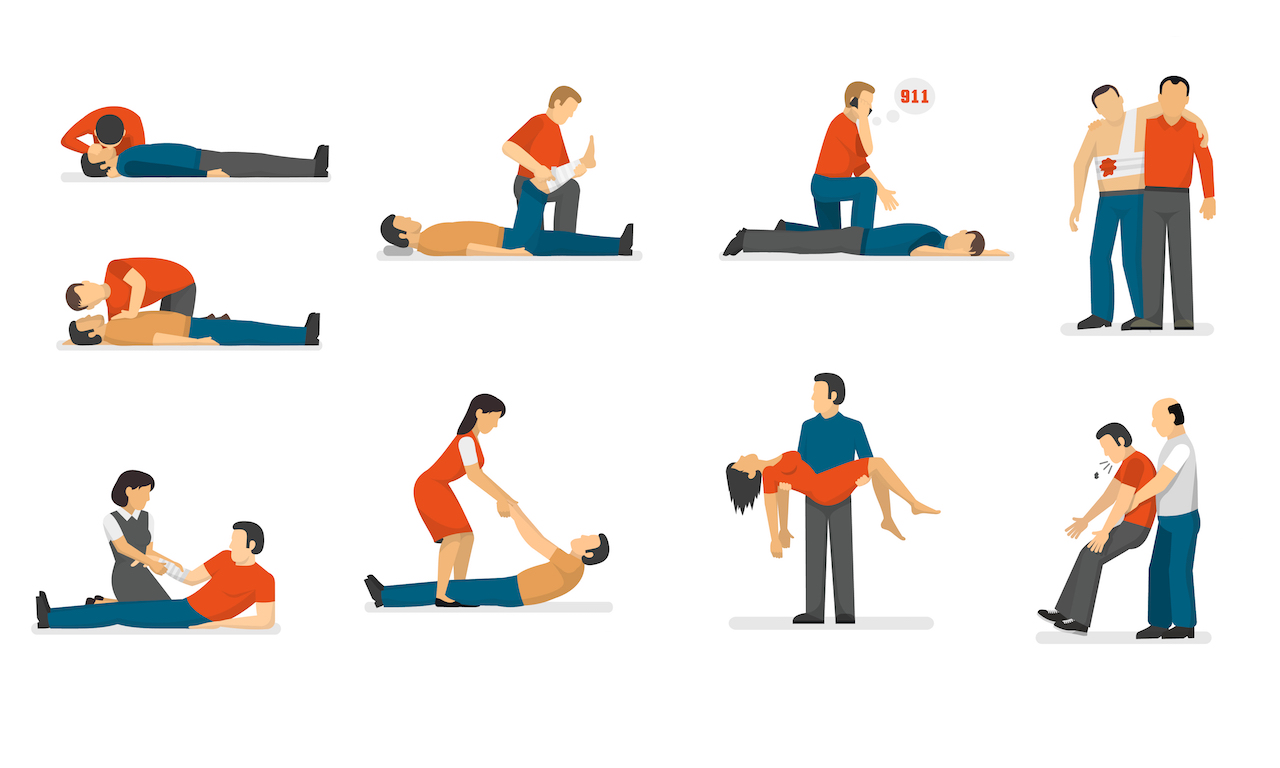The holidays make for fun times, but all that merriment, alcohol and lowered inhibitions can lead to scary situations. This may not give you a qualification as a paramedic, but these tips can help you be a little more prepared for an emergency.
If someone’s having a convulsion
- Lay the person on the ground, away from dangerous objects.
- Don’t try to restrain them.
- Loosen their clothing if necessary.
- Never place anything in their mouth!
- When it’s over, keep them on their side with their head down to allow easy breathing and prevent choking.
If someone’s having an asthma attack
An attack usually happens in episodes, during which the airways to the lungs narrow, making it hard to breathe. Help the person find and take his medication quickly. Talk to him in a calm, reassuring manner, and encourage him to rest and sit quietly until help arrives.
Get help immediately if:
- Someone’s struggling to breathe or is unusually short of breath.
- The person’s medication doesn’t bring relief.
- The person has difficulty walking or talking.
- His fingernails and lips turn bluish-gray.
If someone’s in shock
Shock is when blood pressure drops suddenly and drastically. This could lead to tissue damage and even death.
- Early symptoms of shock may include confusion, restlessness and anxiety.
- Call an ambulance immediately if you suspect someone is going into shock.
- Elevate the person’s legs if they have no spinal injury, keep them warm and calm, and don’t give them anything to eat or drink.
- Check the ABCs: airway, breathing and circulation. If necessary, begin rescue breathing and CPR. If there’s any external bleeding, do your best to stop it.
If someone’s been poisoned
- Call emergency services if the person shows signs of poisoning or is unconscious. Provide information about the poisoning: the poison that was taken, the amount, how it entered the body, and when it was taken. Give the person’s age and approximate size or weight.
- Perform CPR if the person is unconscious and not breathing, but first check for poisonous material around the mouth. Wash the area around the person’s mouth and if necessary, use a barrier device.
- Keep a sample of what the person has taken, even if it’s an empty container.
- Don’t try to make the person vomit. This could cause more damage.
If someone has a head injury
- If he hasn’t lost consciousness and is alert, apply an ice pack to the area for 20 minutes. Wrap the pack in a cloth to prevent damage to the skin from extreme cold.
- Watch the person carefully for the next 24 hours. If he shows signs of internal head injury, call your doctor immediately.
- You need immediate medical attention if the person is unconscious, has an obvious wound, is bleeding, has speech or vision disturbances and struggles to breathe.
- If he’s unconscious or there’s any paralysis, don’t move him at all.
- If he vomits, roll him onto his side to prevent choking.
- If he has a seizure, roll him onto his side and make sure the tongue has fallen forward in the mouth to keep the airway clear.
- If there’s swelling to the head, apply an ice pack.
- Don’t remove any object stuck in the wound.

